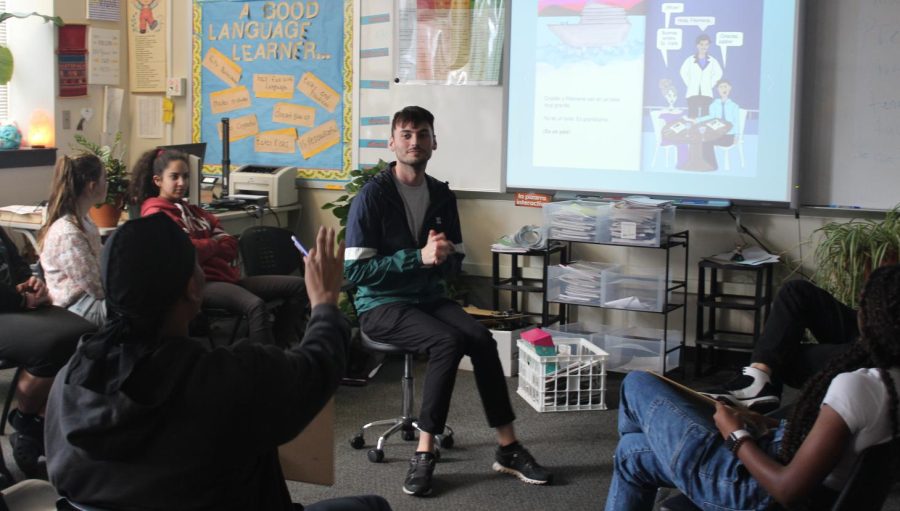World language classes give students a leg up in more ways than one
January 17, 2023
The World Language department teaches one of two subjects that aren’t required to graduate from NAHS, but is often one of the most important for the futures of students.
There has been extensive research concerning the positive impacts learning a new language has on students. There are many quantifiable benefits, such as higher reading achievement, improved memory function, and an expanded vocabulary, according to the American Council on the Teaching of Foreign Languages (ACTFL).
“It has allowed me to understand languages as a whole on a different level, developing both my English and Spanish understanding of grammar and syntax,” senior Jackson Mehling said.
There have been plenty of other observed benefits, many of which deal with making students well-rounded and introducing them to new cultures and ways of life.
“[World languages] just give us so many advantages from a social aspect and we can communicate with so many more people. It really sort of opens the door to give you more opportunities to see different cultures and expose you to a different thinking that you might not have been exposed to previously,” ELL teacher Lee Milanich said.
Another common advantage that comes with experience in a second language is the ability to advance in your career, according to Lead with Languages. Whether it’s standing out over other applicants, or beating out other employees for a promotion, being bilingual (or multilingual) can be helpful in more ways than one.
“Knowing a second language opens up various work opportunities. Plus, many jobs offer travel options,” Spanish teacher Ben Brown said. “Being bilingual puts students at an advantage to communicate with others.”
For the language teachers in our building, there are an endless number of reasons why learning a world language in high school is a smart move to make.
“I encourage all students to take a foreign language because it is a unique experience in high school for everyone to start at the same place,” Brown said. “For years, some students have been better readers, speakers, or writers than others; however, in a language class, everyone starts at the same place on the first day, and no one is better than another. Also, learning a foreign language is a new challenge that tests your mental endurance. It puts you out of your comfort zone.”
Learning about new cultures and perspectives and thinking outside the box are just two of the many reasons why everyone should start learning a new language, according to Duolingo, who teaches languages to over 49 million monthly active users.
“[Foreign languages] might introduce [students] to a different population of kids that they normally wouldn’t have been introduced to, and that’s always good because we tend to cluster in what’s familiar to us,” Milanich said. “When we go into something that’s completely unfamiliar, like a foreign language, you’re going to inevitably be exposed to a different population of kids, and maybe a different perspective.”
Although students may not always realize each and every way they are impacted by their high school language class, for many, it’s hard to forget the memories they made while learning.
“It’s really just a class of talking to people. Being with friends and learning a new language together in the process promotes both relationship-building and education,” Mehling said.
While world language classes are considered electives, they can be some of the toughest classes students will take in high school. They require not only intellect and language skills, but also engagement in the classroom and a willingness to learn. And for the people who have reservations about entering the unknown and signing up for a foreign language class for the first time, not a single teacher in the department would be unable to offer advice and words of encouragement.
“Stay determined, don’t give up, and don’t be concerned about the accent, because that will come with time,” Milanich said.


